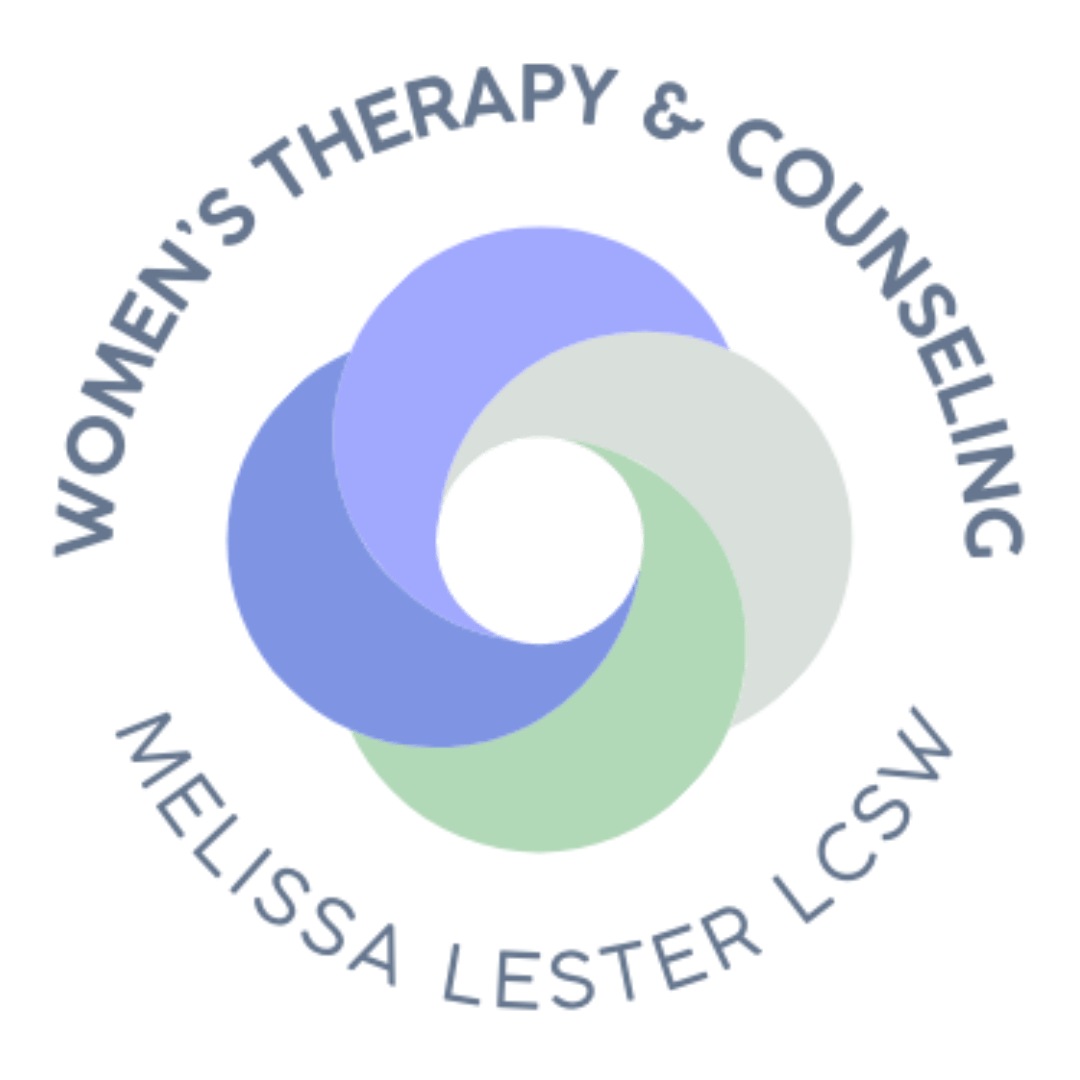Women’s Therapy & Counseling
Melissa Lester, LCSW
Why Therapy & Counseling for Women
We’ve come a long way…
Twenty years ago, when I first bravely declared myself a therapist specializing in Women’s Issues, it felt quite bold. It also made me anxious. I didn’t see other therapist’s loudly identifying this way or declaring women’s issues as their niche.
And yet, it was immediately clear to me that working with women brought out the very best in both me and my skills. It allowed me to be my most effective and most impactful. And it was deeply rewarding in a way that working with men, at the time, was not. It also felt like an ethical obligation to only work with people with whom I connected deeply.
Or Maybe Not…
Women are still socialized to accept all of the disparities, limitations and restrictions that a patriarchal society creates. And in some cases, we are expected to embrace and celebrate them, (keep smiling!) long after it’s clear that we are not able to live authentically as ourselves.
In a world that does not make room for women, it is up to each individual woman to forge her own path. I believe it is every woman’s duty to support other women along the way. And when this happens – everybody is better for it – women, men, children, animals, earth.
Therapy is an opportunity to un-learn what has not been helpful, to re-learn what you once knew and to grow into a healthier and more peaceful version of your Self.
Because when you live your life in alignment, you also make it possible for those around you to do the same.
Being a therapist has been a clear calling for me since – well, always. But it took many years of trying to meet the expectations of others (and years of my own therapy) before I could honor my truth and start the process of making it my reality.
Many clients, trainings and grief-inducing events later, my practice and I have both changed and evolved considerably.
Some of these changes are hard-won in the ways that living, aging, and grieving ‘happens’ to us – that new view from a place that we never knew existed and didn’t want to visit.
Many other changes have been cultivated intentionally. I think of peace, solitude, silence, stillness as the tenets I strive for (and often fall short of) – and my own contribution to the English language “JOMO” – the Joy of Missing Out!
I still wrestle with the strong urge to ‘do’ a lot, but I’ve also been able to slow down, become more ‘mindful’ and honor my personal motto of “Go slow – or don’t go.” Less (of most things) is definitely best.
Through all of it, I am incredibly fortunate to sit with other women (and a few men) who are also making their own beautiful, messy way in this difficult life.
At the end of the day, this ‘work’ of being with my fellow humans through our pain and growth and healing – and being able to share my Self and my skills – is what, for me, makes it all ok.
Meditation and Mindfulness
Meditation and mindfulness are powerful tools to increase awareness of the ‘right here, right now.’ And for women, I often find these approaches to be a perfect way to begin reconnecting with Self in the therapy process. The benefits of meditation and mindfulness are both immediate and long-term.
Often, as I introduce the practice of Meditation and Mindfulness in the context of women’s therapy and counseling, it is instantly grounding, calming and regulating. Other times I find that even clients who struggle with these approaches eventually do benefit just as much as those who get it ‘on the first try.’
The more we cultivate our ‘right here, right now,’ the more grounded, solid and powerful we become in our own lives.
My own meditation practice, off and on for many years, connects me more deeply with my Self. It eliminates anxiety, increases clarity and reminds me that there is a greater wisdom for us all to access.
‘Sitting with Self’ can be a radical act of self-care.

EFT Tapping
EFT Tapping (“Emotional Freedom Techniques”), or just “Tapping,” is a rapid and effective way to regulate our emotions and resolve our distress. It calms our body, clears our mind and helps us to function at our best.
Tapping is a highly researched (100+ studies) method to slow the body’s Nervous System and regulate our own emotional state.
Tapping reduces:
- Anxiety 47%
- PTSD 86%
- Cortisol 49%
- Pain 37%
- Blood Pressure 8%
- and more
It is used for emotional wellbeing, physical health and performance enhancement. It is used by wellness professionals, medical professionals, athletes and more.
And because Tapping grounds us in our bodies, it is ideal for anyone needing to reconnect with their true Self.
Read the research
Hypnosis and Hypnotherapy
Hypnosis is the intentional use of trance for a clearly defined purpose. And it was one of the first non-talk approaches I sought training in after deciding to specialize in Women’s Therapy and Counseling.
Believe it or not, the human mind is in and out of trance all day, every day. It’s a natural state that occurs automatically, and that we can also use intentionally.
All hypnosis is, in fact, ‘self-hypnosis.’ You must be voluntarily engaged in the process, and open to a hypnotic suggestion at the unconscious level, or it will have no effect on you at all.
I am trained in Hypnosis by both The American Society of Clinical Hypnosis and the Anxiety and Stress Management Institute.
On A Personal Note
My own diverse cultural, religious, and geographic background has shaped my values, my path and how I practice therapy. My personal encounters with physical illness, disability, divorce, depression, anxiety, substance abuse, loss, dying, death and grief shape who I am and inform my work. I am deeply invested in the well-being of women – women of all shapes and sizes, cultures and religions, abilities and disabilities, ages, races, sexual orientations, socioeconomic, and occupational status.
You are welcome here. And I want you to know that change is possible.
